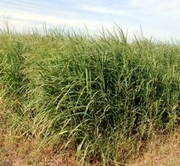One way in which the Internet can impact policy in the coming years is by speeding the flow of information and belief from the people to policy-makers.
In the TV age there can be immediate reaction, but only to one thing at a time. Subjects beyond what appear on the nightly newscasts are usually dealt with through elite interaction, which occurs more slowly and can become dominated by specific business interests (as opposed to the interest of business generally).
With the Internet, on the other hand, everything can be on the table, at all times. When views change, not just among elites but among the people generally, the Internet enables this to be reflected back to policy makers, even on subjects previously left exclusively to elite lobbyists.
A great example of what I’m talking about here is The War Against Oil. Everyone agrees on the priority. Even Republican candidates in 2008 accept the premise of global warming. But throughout the political class there’s a disconnect between what they’re chattering about and what’s happening here on the ground.
Take ethanol. The numbers don’t work, especially when
you’re talking about ethanol from food crops like corn and sugar. Thus
Europe, which has a far more diffuse (and to American eyes distant)
power structure, is turning away from ethanol.
American politicians, on the other hand, are still drinking the Archer Daniels Midland
Kool-Aid. The only way biodiesel works at all, so far as I’m concerned,
involves the recycling of cooking oil from restaurants and homes, and
I’ve got 20 gallons of the stuff I need to get rid of.
This despite the fact that even GM has moved on to the next boondoggle, cellulosic alcohol from switchgrass. Superficial research indicates
the numbers can work on switchgrass, in that it will take less energy
to grow the stuff and get it turned into something than it costs to
grow it. (Trouble is we don’t have a working plant yet, just a lot of proposals.) The numbers don’t work on food crops. It costs a lot more in
fertilizer and tilling to grow food and transport it than the value of
the energy you get out of biofuels made from food crops.
Despite this undeniable fact, the new energy bill still has billions of
dollars in subsidy for the production of energy from food crops. So if
you go to the store tomorrow and find the broccoli costs $5/pound,
that’s why.
There are going to be lots of detours in the War Against Oil,
technologies which appear attractive at first but wind up, on later
review, to be bogus. The faster we can get this knowledge from the
field to policymakers, and get it acted upon, the better the War effort
goes.
Thus the way in which candidates propose to use the Internet becomes a
vital ingredient in how they propose to fight the War Against Oil. How
receptive are they going to make agencies to the people, not only
ordinary people but experts in every field impacting policy? What
organizational strategies are they going to use to enable the
technology to do what it’s capable of?
This is a question usually given to elites, and I doubt it will be
given to anyone during the current campaign season, but it’s going to
make a bigger difference to 2009 and beyond than you think. Unless the
next Administration understands what the Internet is capable of, both
in terms of informing policy and in carrying it out, and organizes
every agency around that understanding, the best of intentions will
mean very little.











